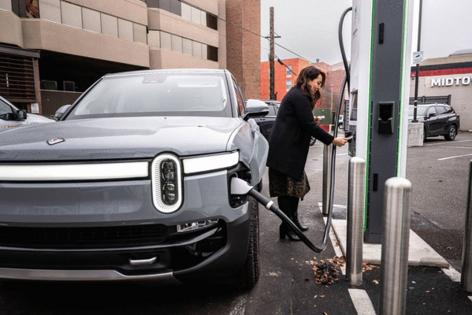Editorial: Rivian bailout looks like Biden's Solyndra
Published in Op Eds
It’s a lot easier to give a multibillion-dollar loan to a failing company when you’re doling out other people’s money.
Late last month, the Biden administration announced it would provide a $6 billion loan to Rivian Automotive, an electric vehicle company. The money will help the company build a previously planned Georgia factory. Those plans stalled this year after the company faced financial problems.
Last year, the company sold 37,396 vehicles and lost around $4 billion for its trouble. That works out to a loss of more than $107,000 per vehicle, according to The Wall Street Journal. The company made major capital investments but didn’t sell enough vehicles to offset the cost.
In a free market — or what’s left of it in the automobile industry — that’s the risk investors knowingly accept. If they help fund a successful company, they can make back their money many times over. If they don’t, they can lose it all. This profit motive forces them to judiciously determine who is worthy of their capital. This helps ensure money generally goes to the opportunities that best meet consumer demand.
But Rivian isn’t operating in a free market. Congressional Democrats have intervened heavily in the automobile industry based on their fear that carbon emissions from gasoline cars drive global warming. In 2023, President Joe Biden said global warming was the “single most existential threat to humanity we have ever faced, including nuclear weapons.” Note the disconnect between the left’s rhetoric and its opposition to nuclear power and new lithium mines.
Here are a couple of ways progressives have tried to reconfigure the American car market. The inaccurately named Inflation Reduction Act offered a $7,500 tax credit for buyers of EVs and a credit of up to $40,000 for vehicles weighing 14,000 pounds or more.
Yet even that expensive giveaway didn’t help Rivian sell enough cars. The Biden administration has done more, however. In March, the EPA imposed emission standards that are so strict they function as a de facto ban on automakers meeting demand for gasoline-powered vehicles.
But consumer interest in EVs is waning. In August, Ford announced that it was shelving its planned fleet of all-electric SUVs and moving to hybrids.
This is why Biden wants to subsidize Rivian. His emission goals require more EV production even if consumers want other options, such as hybrids and gas-powered trucks.
In 2009, the Obama administration doled out a $535 million loan to Solyndra. The solar company later went bankrupt. That handout became shorthand for Obama’s green largess.
If only taxpayers had gotten off so cheaply with Biden’s Rivian giveaway.
_____
©2024 Las Vegas Review-Journal. Visit reviewjournal.com.. Distributed by Tribune Content Agency, LLC.




























































Comments